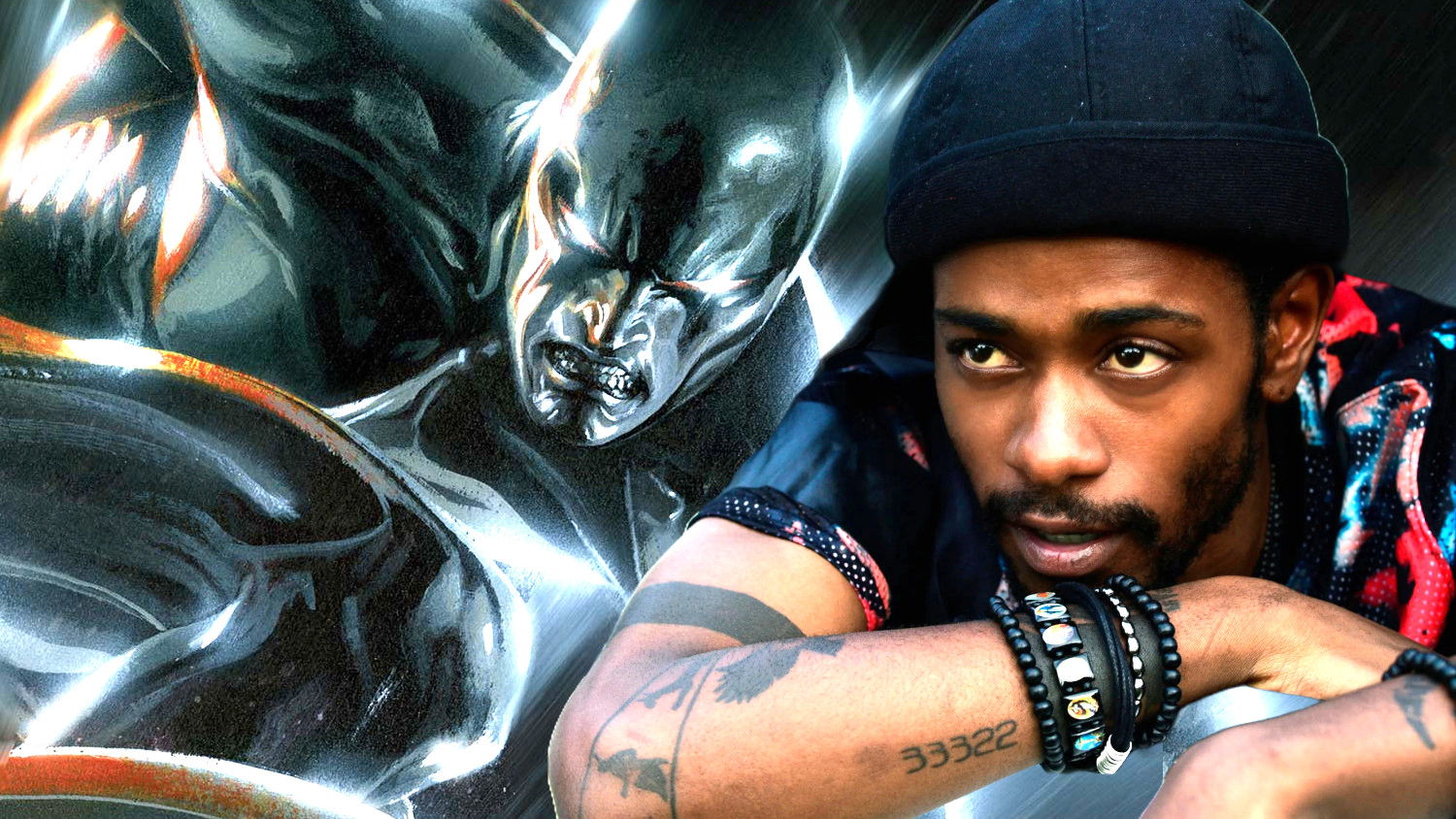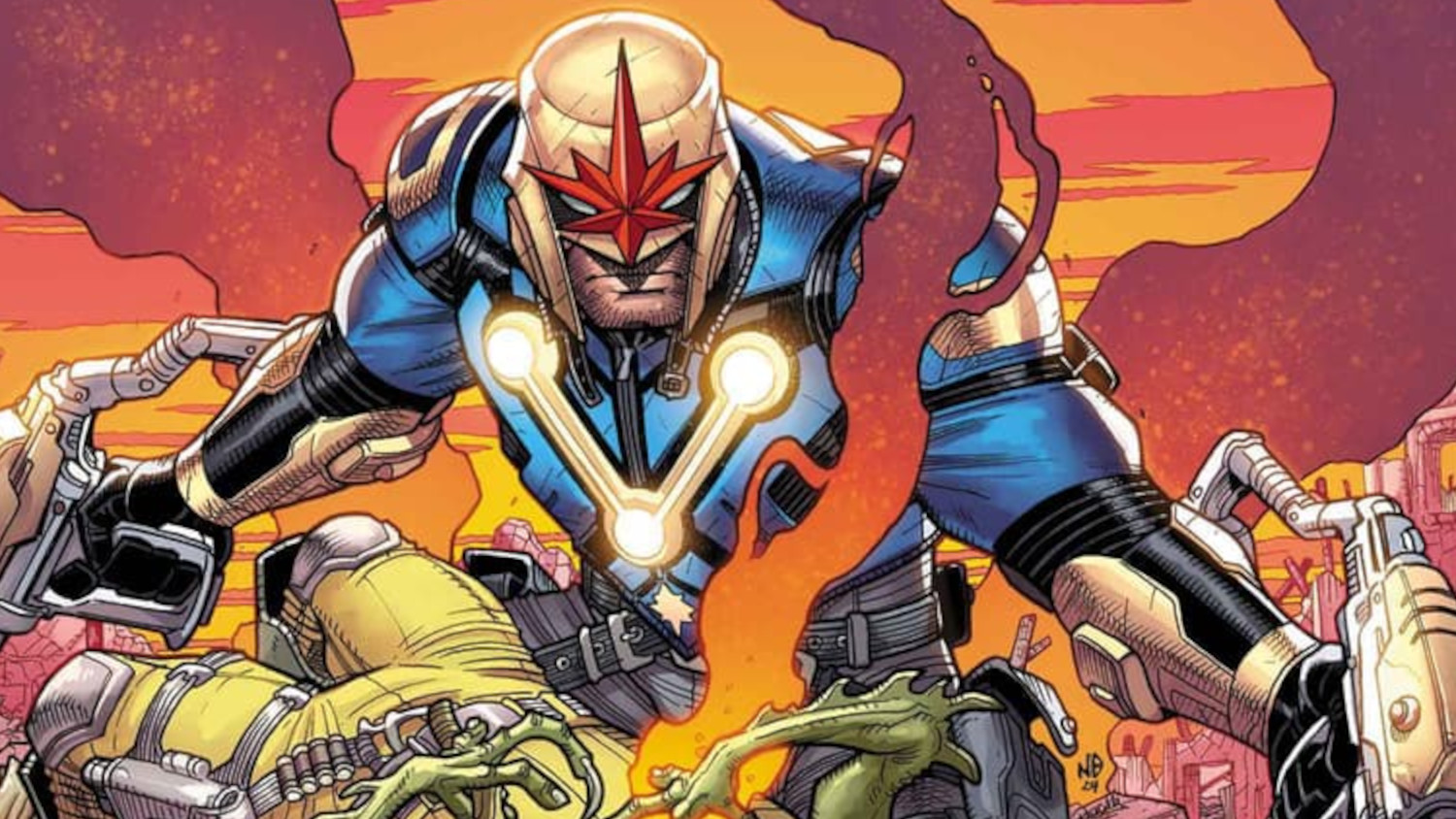Nothing Says “I Love You” Like … Another 80s Remake?
A Film Review of Robocop (2014)
By Lawrence Napoli
[[wysiwyg_imageupload:13737:]]
First I’d like to say happy Valentine’s Day or Weekend or whatever to everyone taking some extra time to show some of those good vibrations to the ones closest to your hearts. I wish you all good times, good talks and good (where appropriate) whoopee.
As for the Robocop remake, I’ve said it before and I’ll say it again: “I don’t like remakes.” I will never appreciate the principal of revisiting fictions of the past, calling it a “re-imagining” and then putting the exact same title on it. Heck, so many remakes claim to be exploring different perspectives, different takes and doing different things with the plots when in fact they really don’t and if they do their characters aren’t as good, the stories aren’t as interesting and the new setups seem odd in that nothing seems to be relevant to the original film, thus invalidating the need to copy the title in the first place. A good example of this would be another Paul Verhoeven film that was recently remade back in 2012: Total Recall.
So if you don’t want to copy an original film (frame for frame) with contemporary special effects and computer graphics, but still want a story that harkens to its roots and still be good, all at the same time, what do you do? The options are limitless for the unrestricted writer, but in the case of the Robocop remake, the strategy at work was some aesthetic bodywork to the candy coated shell of a sci-fi/action film while completely overhauling the gooey, caramel filling of pulp shock value and ultra-violence by upgrading the engine with the heart healthier dark chocolate of political and social commentary concerning the ghost in the machine, the manipulation of “security” at home and abroad as well as Corporate America’s role in the whole equation. Essentially, director José Padilha and writer Joshua Zetumer turn the Robocop franchise into something else and in my opinion, something much more interesting. Gone are the excessive blood squibs, gone are the close-ups on limb explosions, gone is the casual vulgarity, gone is the shameless sexual objectification, gone is the R-rating. What remains is incorporating a nearly dead human being into the body of a robot, his (or its) struggle to reintegrate with his family and community, corporate conspiracy and action (despite the fact that it cuts away every time for PG-13 purposes).
This contemporary update of Robocop features a story and script that clearly desires to step away from its predecessor, but what’s astounding is that it does so with such assertiveness that is extremely rare coming from a rookie in the screenwriting game. Joshua Zetumer has one credit on imdb.com (and no bio – with a few un-credited rewrites) and it’s for Robocop (2014). Perhaps the collaboration of MGM and Columbia-Sony had seen far too many shameless rip-offs by other up and coming writers that adding another to the list of remake throwaways wasn’t worth another hundred million dollar budget. The studios took two major risks in 1) putting novices in command of production and 2) signing off on such a divergent tale from the original. I imagine that Padilha and Zetumer were constantly reassuring studio execs at every stage that “he’s still Robocop, he’s still shooting bad guys, he’s still going toe to toe with other robots – don’t worry.”
With any story, there are strengths and weaknesses. As a whole, the Robocop remake is a much more intelligent use of the license that delves into global issues concerning security and the various costs of said security paid by governments, communities and individuals. In lieu of the random commercials that framed the audience in 80s sentiment from the original, the remake features media commentary from Pat Novak (Samuel L. Jackson) who lays out the exposition of this not so distant future as well as commentating on the progression of the active plot through the eyes of the media machine. These scenes run much longer than 30 second spots, but give the audience a much fuller perspective of the pro-corporate, pro-robot and pro-right wing perspective when it comes to the politics of handing all security over to inanimate objects.
It also features a large amount of dialogue concerning the ethics, morality and/or philosophy of the melding of man and machine. Every scene between Dr. Norton (Gary Oldman) and Alex Murphy (Joel Kinnaman) is intensely emotional as Murphy must deal with the gut-wrenching shock of accepting his new reality while the doctor must deal with the ever increasing guilt of “What have I done?!” to this living, breathing person.
All of this extra time spent with dialogue and exposition certainly leaves less room for the eye candy that is CG-driven action. I would guess that the actual amount of gunplay scenes are close to even between the original and remake, but everyone will remember the original for its graphic violence, which can easily be mistaken as being more “active” in and of itself. The remake attempts to compensate with much cleaner and fluid action sequences that features Robocop being more limber than look-away headshots and the odd, head-torso turn when navigating the general public. This Robocop moves in and out of cover quickly, can make a motorcycle fly and wields guns akimbo. The action also cuts away to some jarring, first person perspective shots from Robocop himself, featuring the various targeting and vision modes he’s privy too behind the helmet. I’m somewhat on the fence in regards to these moments because they seem a bit too video-gamey and I’d rather stay in Robocop’s world and not cross over to Call of Duty. The action is framed with a good enough balance among medium, wide and (obligatory) close-up shots that communicates robotic movement that is indeed superior to human and not simply a walking tank that stomps through its opposition with the grace of a dinosaur.
Creating a Robocop remake that is more intent with explaining the method rather than showing off the active madness demands a cast that will not mail-it-in at any point, from top to bottom. Thankfully, the performances all rank from solid to exceptional thanks in large part to established talent filling most of the roles. Michael Keaton makes for a less nefarious corporate villain behind OCP (but a villain nonetheless) who channels Steve Jobs in terms of presence, but combines it with the savvy of a pure salesman with no medical or technical proficiency to speak of. Jackie Earle Haley is pigeon-holed into another bad-guy role as OCP’s head robot-drone security man who provides a singular opposition to Robocop outside of the waves of drones he must dispatch. Haley’s smarmy delivery provides some welcome comic relief and general bad-assery. Jay Baruchel’s Tom Pope is your prototypical marketing/advertising tool who thinks only in terms of image and the way to sell image and he thankfully doesn’t develop some smooth-talking, suave presence just because the role demanded it. He is still the same awkward speaking, sniveling nerd, but just in a better suit that makes the audience want to hate the principal of “commercializing” more than we already do.
Abbie Cornish’s Clara Murphy is not put into many opportunities to succeed because she’s given one scene to establish “loving, devoted wife” and the rest of the time she is a woman put through the meat grinder of her husband being transformed into a machine, being manipulated by OCP and trying to retain her son’s (and her own) sanity amidst it all. With her role solely dedicated to demonstrating the personal toll of such a science experiment, it is impossible to demand actual chemistry with onscreen husband Alex Murphy, of which there is basically none. As for Robocop, Joel Kinnaman does a very adequate job in a leading role that requires less and less of his entire body to produce a performance. He portrays a tough as nails, undercover cop quite exceptionally, but it is his emotional vulnerability as Robocop “behind the curtain” or rather, as “a fraction of a man” who realizes a monstrosity in his new reality that any rational person would be begging to reject and abort. It’s a performance that’s as real as green screen gets.
However, this film really belongs to two actors. Samuel L. Jackson’s Tom Novak segments essentially produce a black Bill O’Reilly who presents his right-wing perspective with such commercial nuance that I keep expecting him to say “What’s in your wallet?” all the time. The fact that he plays his character with such seriousness and intensity makes his argument so shameless and un-forgivingly villainous that he’s about as cartoonish a politician as your garden-variety, hard-line Republican who actually buys into all the BS, or at least provides a convincing performance. Really? A purely synthetic police and military is such a great idea because they prevent American casualties, feel no fatigue and are most importantly “incorruptible?” Sure, robots, machines and software can’t be hacked, reprogrammed or effectively unplugged to accomplish that feat. CEO’s may be controlling the economic strings, but media icons like a Tom Novak can seduce and ensnare the rest of society which is basically anyone within eyeshot of a TV. Jackson may not be a “main character” in the Robocop remake, but he will be the one you remember.
This film is as much (if not more) Gary Oldman’s as it is (technically) Joel Kinnaman’s. For the life of me, I simply could not figure Oldman for throwing his hat into the remake parade because quite frankly, I thought it beneath an actor of his caliber who’s certainly made more than enough money over his career to be lured by a paycheck film. As the film stands, his role is a lynchpin to the plot and is ironically called upon to make the case for humanism despite his character being a scientist with medical background and a specialization in cybernetics. That’s the kind of role that Gary Oldman would be interested in and he expertly conveys a man torn between duty and morality; between the “could” of science and the “should” of science. The audience falls in love with his character in his very first scene and is constantly troubled by his inner turmoil thanks to the circumstances he is pushed into thanks to his job.
The Robocop remake is not meant to have any of the insight or intent of the original film which was an 80s period piece built around corporate greed, gluttonous consumerism and how it all connects to crime. Our corporate taskmasters remain in this day and age with basically the same agenda, but their influence has expanded to more than just the major cities of America. The larger “crime” at work is its infiltration abroad and the potential to invade the individual’s (literal) inner space. This film deals with the Frankenstein metaphors, the social ambiguities and the influence of “the conglomerate” directly through dialogue and has no interest in dressing it up as something else like ultra-violence. Some may be turned on by this, while others may be left pining for crotch shots and dismemberment. I would have liked to see an R-rated cut of this evolved take on Robocop, but alas, one can’t escape the business tether of Hollywood Land. Regardless, I was impressed at this film’s balance between brains and brawn despite the handicap of PG-13 and it tells a great story by emphasizing plot over spectacle.
This film is a success as a standalone. While it pays very modest respect to its predecessor with a couple familiar lines, retaining most of the original characters while altering some genders and ethnicities, as well as the general look of the lead, I would have loved this story to be entirely original; in name as well as in spirit. This film still doesn’t change my mind in regards to the negative stigma of remakes and reboots because this film had less to do with a re-presentation and more to do with slickly using an established franchise to satisfy studio execs while an entirely different story is told, emphasizing entirely different things, yielding a completely different experience from the original. Most remakes don’t have any of that in their culmination and execution. This one does and I would, in fact, buy that for a dollar!
![[page_title]](https://cosmicbook.news/wp-content/uploads/2022/08/cosmic-book-news-default-featured-image.webp)



